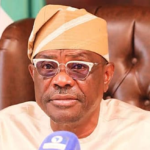By Seth Onyango
Millions of Africans living with disabilities have scored a major win as the African Disability Protocol (ADP) enters into force.
Fifteen African states have ratified the treaty, giving it the legal backing needed to transform disability rights across the continent.
Angola, Burundi, Cameroon, Kenya, Mali, Malawi, Mozambique, Namibia, Niger, and Nigeria are the first 15 to formalise their commitment to this crucial protocol.
Others are South Africa, Uganda, the Sahrawi Arab Democratic Republic, the Republic of Congo, and Rwanda and they will ensure that people with disabilities are protected under comprehensive, enforceable laws.
The ADP is a major win for over 80 million Africans with disabilities, especially those who have been targeted, like people with albinism in some parts of the continent.
Unlike previous international treaties, the ADP is tailored to address the unique challenges and discrimination faced by people with disabilities in Africa. These include deeply ingrained superstitions, harmful cultural practices, and severe discrimination against people with albinism.
For decades, people with disabilities in Africa have faced significant barriers to equality, including limited access to education, employment, and healthcare.
The ADP changes this by mandating member states to create and implement disability-specific laws and policies. This legal framework not only provides protection but also ensures that people with disabilities can hold their governments accountable.
“This is a historic moment for people with disabilities across Africa,” said Lefhoko Kesamang, Senior Social Welfare Officer at the African Union Commission. “The ADP will make a real difference in tackling discrimination and inequality, improving the lives of millions.”
One of the critical aspects of the ADP is its requirement for member states to enact and enforce comprehensive disability rights laws. This means that people with disabilities will now have the legal backing to demand equal treatment and protection under the law.
Additionally, it compels governments to address the root causes of discrimination and to take concrete steps towards fostering inclusivity in all sectors of society.
The protocol builds on the foundation of the United Nations Convention on the Rights of Persons with Disabilities (UNCRPD), enhancing it with provisions that are specifically relevant to the African context.
By addressing issues such as harmful traditional practices and the marginalisation of people with albinism, the ADP provides a more targeted and effective approach to disability rights.
Grace Antwi-Atsu, Senior Advocacy Lead at Sightsavers, emphasised the transformative potential of the ADP. “We are delighted this important human rights charter has finally come into force. It has been a long journey, but this is a significant step towards creating a more inclusive society where people with disabilities are protected by specific laws which cater to their needs.”
The ratification of the ADP by countries like Cameroon, Malawi, Nigeria, Uganda, and the Republic of Congo demonstrates a growing recognition of the importance of disability rights.
This collective effort reflects a broader commitment to human rights and social justice across the continent. The protocol’s enforcement is a testament to the power of sustained advocacy and the importance of international cooperation in achieving meaningful change.
For the millions of Africans with disabilities, the ADP represents hope and a promise of better protection and equality. It is a recognition of their rights and an acknowledgement of the unique challenges they face.
The protocol’s enforcement is a call to action for all African nations to prioritise disability rights and work towards creating inclusive societies where everyone can participate equally.
The journey to the ADP’s ratification was driven by years of relentless campaigning by Sightsavers’ Equal World campaign and local disability organisations.
Their efforts highlight the crucial role of advocacy in driving policy change and the impact of grassroots movements on achieving social justice.
As the ADP comes into force, it will be a beacon of progress and a model for other regions to follow.
bird story agency
Millions of Africans living with disabilities have achieved a significant milestone with the African Disability Protocol (ADP) coming into force. Fifteen African states, including Angola, Kenya, Nigeria, and South Africa, have ratified the treaty, ensuring comprehensive legal protection and enforceable laws for people with disabilities.
The ADP addresses unique challenges such as superstitions, harmful cultural practices, and severe discrimination, including those faced by people with albinism. It mandates member states to create and implement disability-specific laws, enhancing access to education, employment, and healthcare for over 80 million Africans with disabilities.
Lefhoko Kesamang of the African Union Commission and Grace Antwi-Atsu of Sightsavers emphasized the protocol's transformative potential in tackling discrimination and fostering inclusivity. The ADP builds on the United Nations Convention on the Rights of Persons with Disabilities but is tailored to the African context.
Advocacy efforts by Sightsavers and local disability organizations played a crucial role in achieving this milestone. The protocol's enforcement serves as a commitment to human rights and social justice across Africa, promising better protection and equality for people with disabilities.
The ADP's ratification signifies hope and a call to action for all African nations to prioritize disability rights and work towards creating inclusive societies.
This development is seen as a beacon of progress and a model for other regions to follow.






